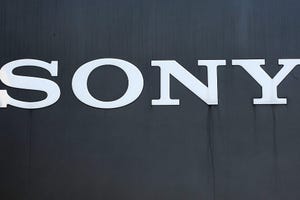Abbott Gains on Medtronic in LVAD Market
Strong results from the MOMENTUM 3 clinical trial could help Abbott take a significant part of the destination therapy portion of the LVAD market from Medtronic.
March 12, 2018

Abbott Laboratories said late-breaking clinical trial data from its MOMENTUM 3 clinical study shows its HeartMate 3 Left Ventricular Assist Device (LVAD) has improved survival and lowered rates of stroke and pump thrombosis.
The Abbott Park, IL-based company released the data during the American College of Cardiology’s 67th Annual Scientific Sessions this past weekend.
Data from MOMENTUM 3 was also published in the New England Journal of Medicine and showed patients with the HeartMate 3 LVAD had a survival rate of 82.8% at two years compared with 76.2% for those with the HeartMate II LVAD. Pump thrombosis rates remained very low, at 1.2% suspected thrombosis for the HeartMate 3 LVAD with no reoperations, pump replacements or urgent transplants occurring at two years. Stroke rate was significantly lower (10% ) for the HeartMate 3 LVAD compared with the HeartMate II LVAD (19%).
The MOMENTUM 3 study data, which will be submitted to FDA to support consideration of a long-term (destination therapy) indication for Abbott's HeartMate 3 LVAD, compared the HeartMate 3 LVAD to the HeartMate II LVAD in treating advanced heart failure.
“Abbott’s MOMENTUM 3 trial demonstrated the superiority of the company’s HeartMate 3 left ventricular assist device vs. HeartMate 2 at two years, setting a fairly clear pathway for U.S. destination therapy approval by year end,” Michael Weinstein, an analyst with JP Morgan, wrote in a research note.
Abbott inherited the HeartMate device through its $25 billion acquisition of St. Jude Medical. In turn, the St. Paul, MN-based company obtained HeartMate through its acquisition of Thoratec, in 2015, for $3.4 billion.
Abbott’s major competitor in the space is Medtronic. The Dublin-based company has the HVAD technology that it obtained through its $1.1 billion acquisition of HeartWare in 2016.
David Lewis, an analyst with Morgan Stanley, said in some cases Abbott’s HeartMate had better results than Medtronic’s HVAD.
“Additionally, stroke was 10% in HeartMate 3 vs. 19% in H2 (p=0.02), a notable improvement over Medtronic’s HVAD, which demonstrated 30% stroke rates at 24 months in its ENDURANCE trial and 17% stroke at 12 months in ENDURANCE 2,” Lewis wrote in a research note. “Momentum 3 data clearly establishes Heartmate 3 as best in class.”
Larry Biegelsen, an analyst with Wells Fargo, said the results could help Abbott gain more traction in the destination therapy market. The therapy provides long-term support in patients who are not candidates for transplant.
“We believe Heartmate 3 will help Abbott take share in the destination therapy portion of the U.S. LVAD market. Recall Abbott has guided to a Destination Therapy indication for HeartMate 3 by 2018 year-end,” Biegelsen wrote in a research note. “Still we expect Medtronic’s HVAD to remain reasonably competitive behind HeartWare/Medtronic’s longstanding physician relationships and the smaller profile of HVAD, which allows for implantation via thoracotomy and use in smaller anatomies.”
About the Author(s)
You May Also Like




